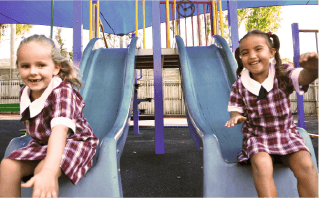
Anger is a normal emotion that we all feel from time to time. However, when anger becomes frequent or excessive, it can be difficult for both children and parents to cope with. If your child is struggling with anger, there are a few things you can do to help them manage their emotions and find internal solutions for dealing with anger. Read on for more tips on how to help your child cope with anger.
How to help your child cope with anger
Many kids struggle to understand the difference between feelings of anger and aggressive behaviour. Frustration and anger can quickly turn into defiance, disrespect, aggression, and temper tantrums when kids don’t know how to appropriately manage their emotions.
Differentiate Between Feelings and Behaviour
As parents, we should permit our kids to express all their feelings However, this doesn’t mean you need to allow all kinds of behaviours.
Teach your child to label their feelings
This helps them verbalize feelings such as anger, frustration, and disappointment. Try saying, “It’s OK to feel angry, but it’s not OK to hit.” Help them see that they’re in control of their actions, even when they feel angry.
Model Appropriate Anger Management Skills
One of the best ways to teach children how to appropriately deal with anger is by showing them how you deal with your emotions when you feel angry. When kids see you lose your temper, they’ll likely model that behaviour. But, if they see you cope with your feelings in a kinder, gentler way, they’ll pick up on that, too.
Although it’s important to shield your children from most adult problems, it’s healthy to show them how you handle angry feelings. Point out times when you feel frustrated, so your child understands that adults have big emotions too.
It’s OK to say, “I’m angry that I dropped the flower pot and it broke, but I’m going to take a deep breath and clean up the mess.” Verbalizing your feelings teaches them to talk about their emotions.
Take responsibility for your behaviour
If you lose your temper in front of your kids, apologize and discuss what you should have done instead. Say, “I am sorry that you had to see me yelling today when I was angry. I should have gone for a walk when I was angry instead of yelling.”
Establish Anger Rules
Most families have unofficial family rules about what behaviour is acceptable and what isn’t when it comes to anger. Make these rules clear to your children. Create written household rules that outline your expectations.
Address areas such as physical aggression, name-calling, and destruction of property so your children understand they can’t throw things, break things or lash out verbally or physically when they are angry.
Teach Healthy Coping Skills
Kids need to know appropriate ways to deal with their anger. Instead of being told, “Don’t hit your brother,” explain what they can do when they feel frustrated. Say, “Next time, use your words” or “Walk away from him when you feel angry.”
You also can ask, “What could you do instead of hitting?” to help your child identify strategies that might be helpful.
You also could create a calm down kit that can be used when they’re upset. Fill a box with items that can help them calm down, such as a colouring book and crayons, lotion that smells good, or soothing music. Engaging their senses can help calm their mind and body.
Another way is to practice Mindfulness while they are calm. Research shows that kids who practise mindfulness consistently have a better ability to apply these coping skills when needed.
Use time-out as a tool to help your child calm down. In my opinion, time-out doesn’t work when used as punishment. However, time-outs can be helpful when they learn to use them before they get into trouble. Removing themselves from a situation before an emotional outburst and taking a few minutes to calm down can be helpful for kids prone to anger.
Also, teach problem-solving skills so children learn that they can solve problems without aggression. Talk about ways to resolve conflict peacefully.
You can use the Superpower Kids How I Can Cope printable to help your child analyse their behaviour and choose better coping skills.
Related Articles
6 Ways to Talk About Big Feelings




